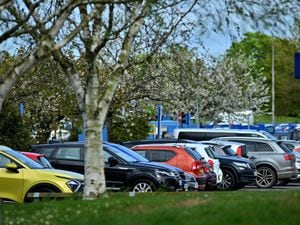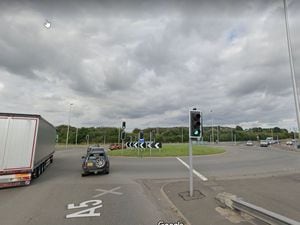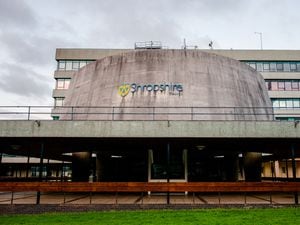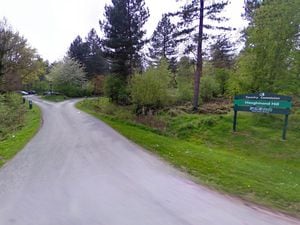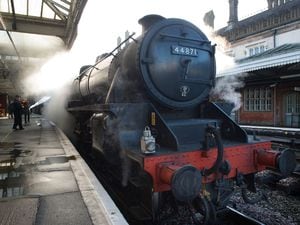RAF veteran speaks about importance of mental health after losing wife of 55 years
An 86-year-old RAF veteran from Shrewsbury whose wife died last year after 55 years of marriage has spoken out about the importance of looking after your mental health.

Colin Stegeman, who lives at Brockton, between Welshpool and Shrewsbury, is open about the importance of getting welfare support, which he calls a 'lifeline'.
“You think you are strong and can take anything but to have your wife who you love, to have her gradually dying over a long period takes something out of you,” he said.
April is Stress Awareness Month and Mr Stegeman is able to get help from the RAF Benevolent Fund’s welfare support services.
Mr Stegeman did two years of National Service in the 1950s and that relatively short experience has given him access to services including a weekly Telephone Friendship Group which has become a real lifeline since his beloved wife Margaret died.
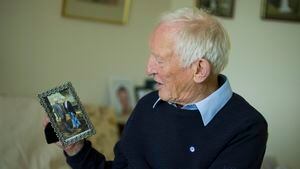
Colin had cared for Margaret for 12 years throughout her treatment for a blood cancer called multi myeloma. He has now received bereavement counselling through the fund to help him come to terms with her loss.
In 2008 he was told his wife had terminal blood cancer so they moved to the area to receive the best medical treatment. She lived for a further 13 years before sadly dying in 2021.
He added: “It is good fun. It gives me a rounded life because I am listening to other people and their problems. Not only do we talk about the RAF, we talk about the situations that we have in our lives.
“Thank goodness the fund treated me equally and so well. I have no worries about accepting their help, because I worked very hard in the RAF and I did my very best for them. I did not let them down, I gave my pound of flesh.”
Mr Stegeman credits his two years’ National Service with giving him the confidence to take the next steps in his life, despite feeling like a ‘second-class airman’ for the duration of his tour.

“I was excited about my National Service, looking forward to it," he said.
"I didn’t mind doing it at all. But when we arrived they gave us these hairy, thick scratchy uniforms from 1942 – I joined in 1957!
"We were treated like second-class airmen as the regular RAF got these fancy uniforms which were easier to press and looked better. I think it was to encourage you to sign on as a regular but it didn’t work with me. I think they should have treated us all decently and equally.”
Colin joined the RAF aged 22, just after the Suez Canal crisis, and became an electrical mechanic with No 60 Maintenance Unit at RAF Rufforth, something he had trained in prior to signing up.
He went on to work as part of a crash recovery team re-wiring downed aircraft all over the country. He was also tasked with converting petrol-engine balloons to electric motor drives for use during the Royal Tournament at London’s Earls Court. The winches were needed to enable parachutists to drop from the roof of the building.
Towards the end of his service Colin maintained the electrical equipment associated with the airfield and control tower which brought him into contact with air traffic control staff and aircrew where it was good to feel part of the team.
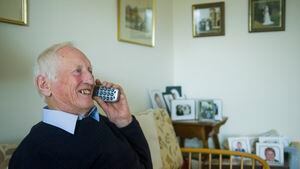
At times he was sent to other stations to service Link Trainers which he had to learn to ‘fly’ or operate. He remembers vividly a kindly ex aircrew Flight Sergeant at RAF Lindholme helping him.
He continued: “Serving in the RAF was one of the best parts of my life but I was frustrated to be treated differently particularly when on parade.
"Identical uniforms would have eliminated a divide between Regular and National Service men, thus welding men together who were doing similar work. Team spirit was important that’s how I felt and still feel!"
Mr Stegeman, who was born in Lincolnshire in June, 1935, went to school in North East Cheshire, but moved to Doncaster to do an engineering apprenticeship. He was called up to do his compulsory military service in October 1957 age 22 and was there until October 1959.
After National Service he joined a big engineering company in London and worked his way up to director, before setting up his own engineering company in West Yorkshire where he worked until he was 59.

